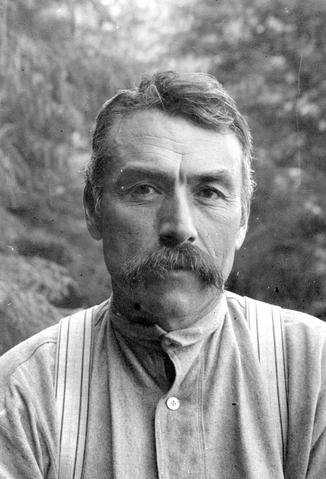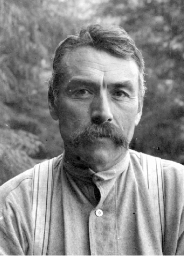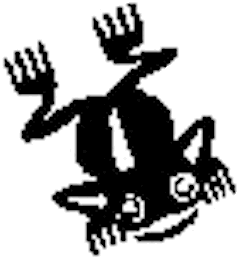They, the informants of Franz Boas, were turned into anthropologists themselves.

インフォーマントと人類学者の区分は便宜的なものである!
They, the informants of Franz Boas, were turned into anthropologists themselves.

解説:池田光穂
以下のレヴィ=ストロースのことばに耳を傾けてみよう。ここでは、 人類学者(エスノグラファー)とインフォーマントの間の共同作業としての民族誌資料の創作ならびに、インフォーマント自身の人類学的性格や自己成型(セル フファッショニング)についての物語が雄弁に語られている。
「以前は——つまり19世紀末や20世紀初頭においては、神話の素材を集めたのはほとんど人類学者たちでした。すなわちそれは、外部の人間 だったのです。もちろん多くの場合、そしてカナダでは、先住民の協力者がありました。たとえば、フランツ・ボアズにはクワクワカワク人の助手、ジョージ・ ハント(George Hunt, 1854-1933)がいました(実は彼は“純粋の”クワクワカワク人ではありません。スコットランド人の父と/トリンギット人の母 から生まれたのですが、クワクワカワ ク人のもとで育てられ、そこで結婚し、その文化がすっかり自分のものになっていました)。チムシアン人については、ボアズは識字者の男ヘンリー・テイトを 使い、マリユス・バルボも、これまたチムシアン人で識字者のウィリアム・ベニヨンを使っていました。このように先住民の協力が最初から得られていたのです が、それにもかかわらず、実のところは、ハント、テイト、ベニヨンた ちは人類学者の指導のもとに仕事をしたのであり、つまり彼ら自身が人類学者に変わっ て いたのです」
Of course, in many cases, and especially in Canada, they had native collaborators. Let me, for instance, quote the case of Franz Boas, who had a Kwakiutl assistant, George Hunt (as a matter of fact, he was not exactly Kwakiutl because he was born of a Scottish father and a Tlingit mother, but he was raised among the Kwakiutl, married among the Kwakiutl, and completely identified with the culture). And for the Tsimshian, Boas had Henry Tate, who was a literate Tsimshian, and Marius Barbeau had William Benyon, who was also a literate Tsimshian. So native cooperation was secured from the beginning, but nevertheless the fact is that Hunt, Tate, or Benyon worked under the guidance of the anthropologists, that is, they were turned into anthropologists themselves. Of course, they knew the best legends, the traditions belonging to their own clan, their own lineage, but nevertheless they were equally interested in collecting data from other families, other clans, and the like.
When we look at this enormous corpus of Indian mythology, such as, for instance, Boas’ and Tate’s Tsimshian Mythology, or the Kwakiutl texts collected by Hunt, and edited, published, and translated too by Boas, we find more or less the same organization of the data, because it is the one which was recommended by the anthropologists: for instance, in the beginning, cosmological and cosmogonic myths, and later on, much later on, what can be considered as legendary tradition and family histories.
(レヴィ=ストロース1996:49-50)『神話と意味』※ただし民族名は、引用者(池田)が最新で適切なものに改めた。
THE 1977 MASSEY LECTURES:An Introduction;1 The Meeting of Myth
and Science;2 ‘Primitive’ Thinking and the ‘Civilized’ Mind;3 Harelips
and Twins: The Splitting of a Myth;4 When Myth Becomes History;5 Myth
and Music
ちなみにOEDによると名詞としての インフォーマントの初出は、1661年で情報を提供する者を指すことばですが、言語学や人類学での通常の「インフォーマント」という用語の初出は1889 年の言語学上の発音をしてくれれる現地の人として使われたのを嚆矢とするようです。OEDでは、名詞の2番目の意味c.として登場しますが、その用例の紹 介はもっとも多い部類に入っています。
c.B.2.c A person
from whom
a linguist, anthropologist, etc., elicits information about language,
dialect, culture, etc. Used esp. in Dialect Geography. Also attrib.
1889 A. J. Ellis
On
Early Eng. Pronunc. V. 2 Where I was unable to obtain vivâ voce or
palaeotypic information, I had the same difficulty as before in
interpreting the informants' orthography. 1902 Amer.
Anthropologist IV. 732 To quote the words of my Indian informant, ‘the
ceremonies of the other shrines were like branches of this shrine’.
1917 Internat. Jrnl. Amer. Ling. I. i. 1 They were
obtained by dictation from a few informants. 1933 L.
Bloomfield Lang. xix. 324 The forms were collected in each case from a
single informant by means of a questionnaire of some two-thousand words
and phrases. 1936 West Virginia Univ. Stud. I. 51 The
first requirement is that both potential informants be natives.
1943 Language XIX. i. 42 The language must be learned
from the lips of a native informant, whose sole function is to talk in
his own language. 1944 Amer. Speech Apr. 135 The
danger inherent in partial reporting, especially when based
on‥inadequate informant work. 1953 J. B. Carroll
Study of Lang. vi. 173 A linguistic scientist‥directed the class⁓room
teaching process and used native informants as models for drill
purposes. 1963 J. Lyons Structural Semantics iv. 76
The linguist can satisfy himself‥by going around and exasperating
several tobacconists with his ‘informant-technique’.
1964 R. H. Robins Gen. Ling. ix. 355 The informant is
not a teacher, nor a linguist; he is simply a native speaker of the
language willing to help the linguist in his work.
1971 D. Crystal Ling. Interlude 137 These
characteristics of the informant sample would have to be made‥
++
■文献
■ 関連ページ

